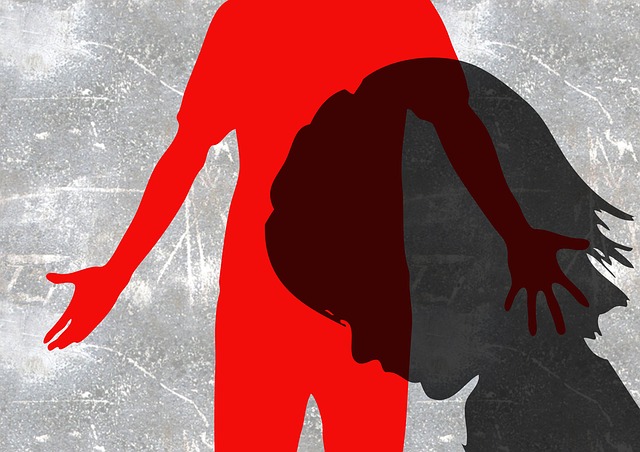Honor Killings in West Asian Domestic Violence
Did you know that Honour Killings in West Asian Domestic Violence often take a form that is particularly heinous and shocking? Honor killings, a brutal manifestation of violence against women, continue to plague societies in the region, leaving behind a trail of devastation and shattered lives. Honor Killings in West Asian Domestic Violence is a sad and intricate aspect in West Asian countries. These Honour Killings in West Asian countries include the entwining of cultural traditions, societal standards, and legal uncertainties. These horrible crimes are frequently committed against women who are seen to have caused disgrace or dishonor to their families.
Moreover, Honour Killings in West Asian countries have become more common in recent years. This presents serious obstacles to attempts to end domestic violence. To address this serious human rights violation it is imperative to comprehend the complex dynamics, societal pressures, and cultural settings behind honor murders.
Honor Killings in West Asian Domestic Violence
Key Takeaways:
Domestic violence in West Asian countries often takes the form of honor killings, which are particularly brutal and devastating.
Honor killings are a manifestation of violence against women and are rooted in cultural norms and gender-based violence.
These crimes are prevalent in West Asian countries, with patterns and trends that shed light on the societal factors contributing to their occurrence.
Honor killings have severe impacts on individuals and communities, leaving lasting scars on survivors and perpetuating a culture of fear.
Efforts to address honor killings require legal frameworks. Advocacy, awareness, and a concerted commitment to promoting gender equality and challenging cultural norms.
Understanding Domestic Violence
Domestic violence is a pervasive issue that affects women of all ages and backgrounds. It encompasses a wide range of behaviors, including physical, psychological, and emotional abuse. These acts of violence occur within the context of intimate relationships and are often driven by cultural norms and power imbalances.
Physical acts of aggression
Violence against women in domestic settings can take many forms. It can involve physical acts of aggression, such as hitting and pushing, as well as verbal abuse, emotional manipulation, and financial control. These acts not only harm the immediate victim but also have a long-lasting impact on their overall well-being, often leading to a cycle of trauma.
Cultural norms
Cultural norms play a significant role in perpetuating domestic violence. In some societies, traditional gender roles and expectations contribute to the normalization of violence against women. These norms often prioritize male dominance and control, undermining women’s autonomy and their ability to seek help and support.
Violation of human rights
Furthermore, domestic violence is a violation of human rights. Every individual has the right to live free from violence and fear, regardless of their gender or cultural background. However, discriminatory cultural norms and practices continue to hinder the protection of women’s rights and hinder progress in addressing domestic violence.
“Domestic violence is a grave violation of human rights that requires immediate and comprehensive action. It is important to challenge cultural norms that perpetuate this violence and to uphold the fundamental rights of women.”
Recognizing and addressing domestic violence requires a multi-faceted approach. It involves raising awareness about the issue, creating supportive networks for survivors, and implementing legal frameworks that hold perpetrators accountable. By challenging cultural norms and promoting gender equality, we can work towards a society that values the well-being of all individuals.
Forms of Domestic Violence In West Asian Countries
Domestic violence can manifest in various forms, including:
Firstly, Physical abuse: Inflicting physical harm or injury on the victim, such as hitting, kicking, or choking.
Secondly, Emotional abuse: Undermining the victim’s self-worth, manipulating their emotions, and isolating them from friends and family.
Thirdly, Psychological abuse: Controlling and coercive behaviors that instill fear and diminish the victim’s autonomy and independence.
Fourthly, Sexual abuse: Forcing the victim to engage in unwanted sexual acts or withholding consent.
Lastly, Financial abuse: Controlling the victim’s financial resources, restricting their access to money, and preventing financial independence.
It is crucial to recognize and address the various forms of domestic violence to ensure the safety and well-being of survivors. By understanding the complexities of domestic violence and its cultural underpinnings, we can work towards ending this pervasive issue.
Type of Domestic Violence
Physical abuse Inflicting physical harm or injury on the victim, such as hitting, kicking, or choking.
Emotional abuse Undermining the victim’s self-worth, manipulating their emotions, and isolating them from friends and family.
Psychological abuse Controlling and coercive behaviors that instill fear and diminish the victim’s autonomy and independence.
Sexual abuse Forcing the victim to engage in unwanted sexual acts or withholding consent.
Financial abuse Controls the victim’s financial resources, restricting their access to money, and preventing financial independence.
The Concept of Honour Killing
Honor killing is a deeply rooted phenomenon that transcends borders and cultures. It is a form of violence that is predominantly perpetrated against women and rooted in cultural norms. This section explores the concept of honor killing, shedding light on its origins and cultural context.
Honor killings are often motivated by the belief that a woman’s actions have brought shame or dishonor upon her family or community. Such actions may include marrying against the wishes of the family, engaging in premarital or extramarital relationships, or even seeking divorce. These crimes are driven by a desire to maintain control over women’s behavior.
The notion of honor with women is deeply ingrained in many societies. Here, women’s actions and choices are closely monitored and policed. This patriarchal mindset perpetuates gender-based violence and denies women agency over their own lives.
It is important to recognize that honor killings are not sanctioned by any religion or culture. It is rather perpetuated by distorted interpretations and misrepresentations. This form of violence is a clear violation of human rights and undermines efforts towards gender equality and empowerment.
The Gender-Based Violence Aspect
Honor killings exemplify the pervasive problem of gender-based violence in many societies. These crimes are the ultimate expression of control and dominance over women, often resulting in their lives being tragically cut short.
By eliminating women who are deemed to have brought dishonor, honor killings reinforce the notion that women’s lives are expendable. This reinforces harmful stereotypes and perpetuates a culture of violence against women.
“Honour” should never be used as an excuse for violence. We must challenge and dismantle the cultural norms and beliefs that perpetuate such atrocities. Moreover, everyone must work towards building a society where women are valued, respected, and free from violence.
Recognizing the Urgency of Change
We must understand and confront the concept of honor killings within the broader context of violence against women. This can be done by addressing the underlying cultural norms and challenging the gender-based violence inherent in these crimes. We can make progress towards eradicating honor killings and ensuring a safer, more equitable world for all.
Throughout this article, we will delve further into the prevalence of honor killings, their societal impacts, legal frameworks, and initiatives aimed at combating this grave issue. By shedding light on this issue, we hope to foster greater awareness, dialogue, and action to bring about lasting change.
Honor Killings in West Asian Domestic Violence
Prevalence and Patterns
Firstly, honor killings are a grave issue prevalent in several West Asian countries. Cultural norms and gender-based violence contribute to the perpetuation of these crimes. Understanding the prevalence and patterns of honor killings is essential for addressing this issue effectively. This can be done by implementing appropriate measures for prevention and intervention.
Honour Killings in West Asian Countries:
Secondly, according to data from local and international studies, honor killings are most common in countries such as Pakistan, India, Jordan, and Iraq. In Pakistan alone, an estimated 1,000 honor killings occur each year. Making it one of the countries with the highest rates of such crimes. These statistics highlight the gravity of the situation and the urgent need for action.
Patterns and Trends:
Thirdly, honor killings often stem from a combination of cultural norms, patriarchal structures, and the desire to maintain family honor. Women are predominantly the victims in these cases. With many being killed for perceived transgressions of socially prescribed roles and expectations. The reasons can range from choosing a partner, seeking divorce, or simply being accused of bringing shame to the family. One of the disturbing patterns observed is the involvement of family members, where close relatives often participate in carrying out or endorsing the act.
Female victims in selected countries
| Country | Annual Honour Killings | Percentage of Female Victims |
|---|---|---|
| Pakistan | 1,000+ | 82% |
| India | 900+ | 75% |
| Jordan | 15+ | 68% |
| Iraq | 50+ | 90% |
This table displays the estimated number of annual honor killings and the percentage of female victims in select countries. Moreover, These figures reflect the severity of the issue and emphasize the need for comprehensive strategies.
The prevalence and patterns of honor killings underscore the urgent need to raise awareness. Challenging cultural norms, and implementing legal frameworks that protect the rights of women in West Asian countries. In the following sections, we will explore the societal factors, impacts, legal frameworks, advocacy efforts, and government initiatives surrounding this issue.
Honor Killings in West Asian Domestic Violence
Societal Factors and Honour Killings In West Asian Countries
Understanding the complex web of societal factors that contribute to the occurrence of honor killings is essential in addressing this grave issue. Moreover, honor killings are deeply rooted in social relationships, cultural norms, and family dynamics. All of which can create an environment where violence against women is tolerated and even encouraged.
Cultural norms
Cultural norms play a significant role in perpetuating honor killings. In some communities, preserving family honor becomes intertwined with controlling women’s behavior and choices. Women are expected to adhere to strict societal expectations, including conforming to traditional gender roles and upholding family honor. Any deviation from these norms can lead to the label of dishonor and the justification for violence.
“Violence against women is often disguised as the protection of cultural norms and family values. This perpetuates a harmful cycle where honor killings remain prevalent in societies.” – Human Rights Activist
Social relationships within families
Social relationships within families and communities also contribute to the occurrence of honor killings. Family honor is often seen as a collective responsibility. Individuals are expected to prioritize the reputation of their family over the well-being and autonomy of women. The fear of social exclusion and ostracism can exert immense pressure on individuals to conform to societal expectations.
Lack of legal and social support
Moreover, the lack of legal and social support for victims of honor killings exacerbates the problem. Fear of retaliation, stigma, and inadequate access to justice further silence victims and perpetuate a culture of violence against women.
Addressing honor killings requires challenging and transforming these societal factors. Efforts must be made to promote gender equality, and challenge cultural norms that perpetuate violence against women. This will create spaces where women’s autonomy and rights are respected. Education and awareness programs can play a vital role in transforming attitudes and beliefs. Further, it can empower individuals to reject violence and embrace respect and equality.
Honor Killings in West Asian Domestic Violence
Impacts of Honour Killings on Individuals and Communities
Psychological Impact
Emotional Impact
Social Impact
Community Stigmatization
Education and Economic Impact
Key Impacts of Honour Killings Individuals Communities
Honor Killings in West Asian Domestic Violence
Legal Frameworks and Responses In West Asian Countries
Implementation of laws
Identification and reporting
Advocating for victims, raising awareness
Legal Frameworks and Responses, Challenges and Efforts and Initiatives
Legal Frameworks and Responses Challenges Efforts and Initiatives
Advocacy and Awareness
Initiatives
Campaigns
Honor Killings in West Asian Domestic Violence
Role of NGOs
Non-governmental organizations (NGOs) play a crucial role in advocating for the rights of women and raising awareness about honour killings. These organizations provide support, counseling, and legal assistance to survivors of violence. They also work closely with local communities to challenge societal norms and promote gender equality.
NGOs employ various strategies to address honour killings, such as:
Firstly, Providing safe spaces and shelters for survivors
Secondly, Offering psychological and emotional support
Thirdly, Advocating for legal reforms and stronger penalties for perpetrators
Lastly, Offering vocational training and employment opportunities for survivors to regain their independence
Activists and Community Organizations In West Asian Countries
Activists and community organizations play a vital role in combatting honour killings by amplifying the voices of survivors and advocating for change. They organize rallies, awareness events, and workshops to engage the public in conversations about gender-based violence and cultural norms. These grassroots movements foster dialogue, empower survivors, and challenge deep-rooted prejudices, thereby reshaping societal attitudes and behaviors.
“Change begins at the individual level. It’s about challenging our own biases and standing up against violence. Collectively, we can create a society that values and protects the lives of women.” – Fatima Ahmed, Human Rights Activist
Community organizations act as a bridge between survivors and support services. They work closely with local leaders, religious institutions, and community members to raise awareness and change mindsets. These organizations provide counseling, legal referrals, and social support systems to help survivors rebuild their lives and ensure their safety.
Conclusion
In conclusion, advocacy and awareness are essential pillars in the fight against honor killings. By actively challenging cultural norms, supporting survivors, and educating communities, we can create a world where violence against women is no longer tolerated. It is through these collective efforts that we can strive for a future free from this horrific form of violence.
Honor Killings in West Asian Domestic Violence
Addressing Honour Killings: Government Initiatives
Government initiatives play a crucial role in addressing the issue of honour killings in West Asian countries. These initiatives aim to combat the violence against women stemming from deeply entrenched cultural norms and practices.
In response to the alarming number of honour killings, governments have implemented a range of measures to protect women and provide them with legal recourse. These initiatives strive to dismantle the societal acceptance of violence and promote gender equality.
“Honour killings are a violation of human rights and have no place in our society. We are committed to eradicating this heinous crime and ensuring justice for the victims.” – Minister of Justice, West Asian Country
Through legislative reforms, governments are enacting strict laws and penalties to combat honour killings. These laws aim to deter individuals from perpetrating such acts and hold them accountable for their actions. Government initiatives also prioritize the protection and support of survivors, ensuring their safety and well-being.
Moreover, governments are actively involved in raising awareness about honor killings and challenging cultural norms that perpetuate violence against women. Community engagement programs, public campaigns, and educational initiatives are utilized to promote a culture of gender equality and respect.
Recent Government Initiatives
Here are some recent government initiatives that have been implemented to address honor killings:
The establishment of dedicated helplines and support services to provide immediate assistance to victims of domestic violence and honor killings.
Creation of specialized units within law enforcement agencies to investigate and prosecute honor killings more effectively.
Training programs for judicial personnel, law enforcement officers, and social workers to enhance their understanding of honor killings and improve the quality of support and justice provided to survivors.
Collaboration with non-governmental organizations (NGOs) and civil society to develop holistic approaches that address the root causes of honor killings, such as gender inequality and harmful cultural practices.
While significant progress has been made through these government initiatives, challenges persist in eradicating honor killings. Resistance from conservative factions of society, limited resources, and the need for robust implementation and enforcement of laws remain key hurdles to overcome.
However, the commitment of governments to address honour killings and protect the rights of women is a crucial step towards creating a safer and more equitable society for all.
Government Initiatives and Impact
Government Initiatives Impact
Enactment of stricter legislation and penalties Greater deterrence and accountability for perpetrators of honor killings
Establishment of helplines and support services Improved access to immediate assistance and support for victims
Creation of specialized units within law enforcement Enhanced investigation and prosecution of honor killings
Training programs for judicial personnel and law enforcement officers Improved understanding and response to honor killings
Collaboration with NGOs and civil society Holistic approaches to address the root causes of honor killings
Honor Killings in West Asian Domestic Violence
Promoting Gender Equality and Challenging Cultural Norms
One of the key strategies for addressing the issue of honor killings and combating violence against women is by promoting gender equality and challenging cultural norms that perpetuate such violence. By creating a society that values and respects women’s rights, we can work towards eliminating honor killings and creating a safer environment for women.
Educating for Change
A critical aspect of promoting gender equality and challenging cultural norms is education. It is crucial to educate communities, families, and individuals about the importance of gender equality, women’s rights, and the unacceptability of violence. This education should target both women and men, aiming to create a shared understanding and commitment to fostering a culture of gender equality.
By providing comprehensive and inclusive education, we can challenge harmful gender stereotypes, dismantle traditional notions of honor, and cultivate empathy and respect for women. This education should begin at a young age and continue throughout a person’s life, ensuring a sustainable and long-lasting impact.
Empowering Women
Another crucial step in promoting gender equality and combating violence against women is empowering women themselves. This empowerment can take various forms, including providing access to education, economic opportunities, and legal support.
By empowering women economically, we enable them to become financially independent, reducing their vulnerability to violence and control. Additionally, empowering women through education and legal support ensures that they are aware of their rights and can take action against any form of violence or discrimination they may face.
Engaging with Communities
Challenging cultural norms requires engaging with communities and working together towards change. It is important to foster dialogue, raise awareness, and involve community leaders, religious figures, and influential individuals in the fight against honor killings and gender-based violence.
“Changing cultural norms is a collective effort that requires community involvement, dialogue, and a commitment to gender equality.” – Dr. Leila Ahmed, Gender Equality Activist
By engaging with communities, we can challenge traditional beliefs and practices, encourage critical thinking, and promote inclusive and respectful attitudes towards women. This process requires patience, sensitivity, and a deep understanding of cultural contexts to ensure sustainable change.
Advocating for Legal Reforms
Advocacy for legal reforms is another vital component in challenging cultural norms and addressing violence against women, including honor killings. It is crucial to strengthen legal frameworks, ensure laws are enforced effectively, and close any legal loopholes that allow perpetrators to evade justice.
This advocacy includes pushing for harsher penalties for honor killings, promoting laws that protect women’s rights, and advocating for the incorporation of gender-based violence prevention and response strategies into legal systems.
Honor Killings in West Asian Domestic Violence
Conclusion
In conclusion, the issue of honor killings in West Asian countries is a grave manifestation of violence against women. This form of violence, rooted in cultural norms and gender-based discrimination, has devastating consequences for individuals and communities.
Therefore, we must recognize the seriousness of honor killings and take collective action to address this issue. Governments, civil society organizations, and communities must work together. Advocacy and awareness campaigns are also essential in challenging the cultural norms that perpetuate violence and promoting gender equality.
Eradicating honor killings requires a multi-faceted approach that encompasses education, empowerment, and societal change. By promoting gender equality, challenging cultural norms, and providing support to victims, we can create a safer and more just society for all women in West Asian countries. Therefore, let us stand together to end honour killings and create a future where every individual is valued and respected.
FAQ
What are honor killings?
Honor killings are acts of violence, typically against women, committed by family members or close relatives due to the belief that the victim has brought shame or dishonor to the family or community.
In which countries do honor killings occur?
Honor killings primarily occur in West Asian countries, including Pakistan, India, Afghanistan, Iraq, and Iran. However, cases have been reported in other regions as well.
What are the causes of honour killings?
Honor killings are often rooted in cultural norms. However, patriarchal traditions and societal expectations prioritize family honor over individual rights and autonomy. However, there are other factors such as religious beliefs and perceived violations of gender norms also contribute to these crimes.
How prevalent are honor killings?
Exact statistics on honor killings are difficult to obtain due to underreporting and cultural secrecy. However, it is estimated that thousands of women and girls are victims of honour killings each year.
What are the consequences of honour killings?
Honor killings have severe consequences, not just for the victims but also for their families and communities. Moreover, they perpetuate a cycle of violence, instill fear in individuals, and hinder progress toward gender equality.
How do organizations and activists respond to honor killings?
NGOs, activists, and community organizations play a crucial role in raising awareness about honour killings, advocating for victims’ rights, and promoting legal reforms to combat this issue. Moreover, They provide support services, safe spaces, and education to empower individuals and challenge cultural norms.





0 Comments